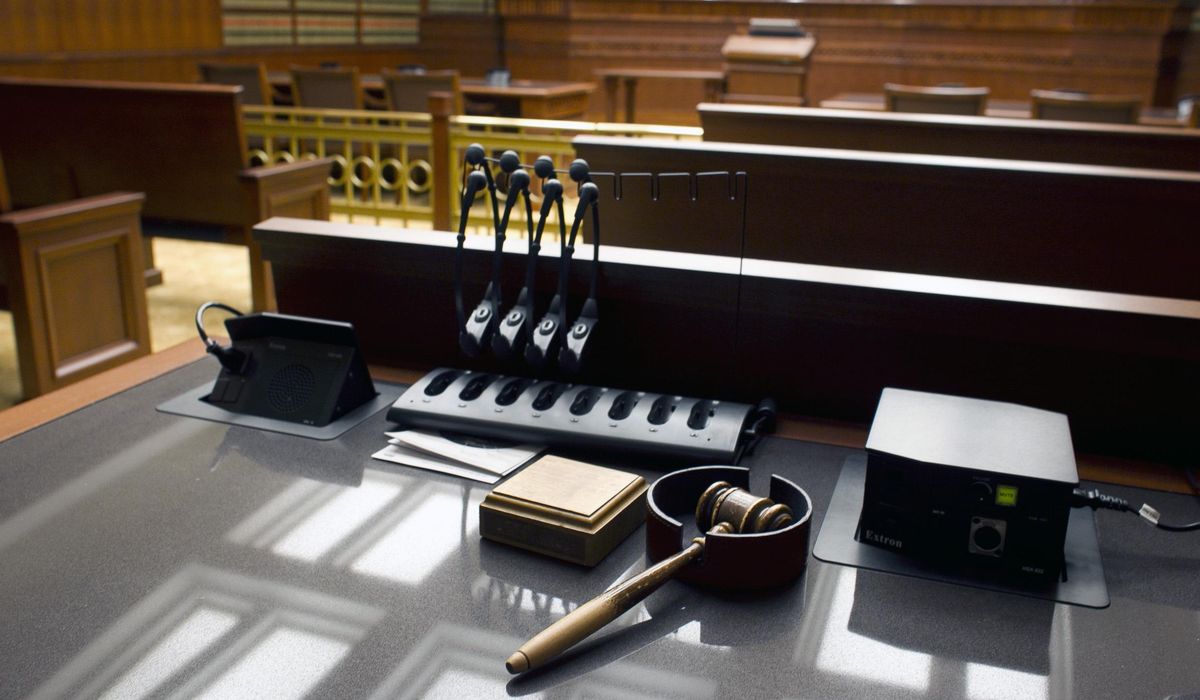Chinese national gets 3 12 years in jail for scheme to buy US commando craft

A Chinese national was sentenced to 3 ½ years in prison on Friday as part of what U.S. officials said was a plot to illegally export inflatable military boats that are used by special operations commandos to China.
Ge Songtao, 51, of Nanjing, China, pleaded guilty in federal court in Florida last fall to charges of conspiracy to submit false export information to the federal government. Analysts said the case reveals how China’s military has gone through Hong Kong to obtain embargoed goods.
U.S. District Judge Harvey Schlesinger, during a hearing in Jacksonville federal court, said Ge intended to reverse-engineer the special military-grade engines and sell a knock-off version to Beijing’s military. The boats were described in court as “maritime raiding craft.â€
According to court papers in the case, Ge and an associate, Yang Yang, worked for a Shanghai company that sought to buy seven inflatable boats equipped with engines capable of using either gasoline, diesel or jet fuel. The boats are designed to covertly dispatch special operations commandos from submarines or aircraft and are not available in China.
China has been building up its military forces for the past several decades with a focus on developing elite commando units.
Ms. Yang, also a defendant in the case, told the U.S. manufacturer the buyer of the boats was a Hong Kong company when in fact the Shanghai company was the attempted purchaser, according to prosecutors.
Ge’s role in the scheme involved wire transfers of about $115,000 to the U.S. manufacturer who was not identified by name, using two Hong Kong firms as cutouts. Ge also made arrangements for an employee to travel to Hong Kong to accept the boats and engines and arrange shipment to the mainland.
The court ordered Ge to forfeit the money he had wired to the California-based company.
Hong Kong until recently faced looser export controls than mainland China, where all U.S. military exports are banned. The Commerce Department in December changed the former British colony’s trade status to the same export control restrictions used for the rest of China.
The specific charges related to submitting false documentation to the Automated Export System, a federal interagency system used for exporting products from the United States.
The judge said that Ge, after charges were brought in the case, tried to obstruct the proceedings in several ways, including seeking the help of an associate in China to produce false documents about the deal.
“The illegal exportation of sensitive technology poses a clear, significant threat to our national security,†said Brian Dugan, Special Agent in Charge of the FBI Norfolk Division. “This case proves that the FBI and our law enforcement partners are fully dedicated to preventing the theft of vital technologies, no matter how challenging the work.â€
Yang has already been sentenced to 14 months, and a second co-defendant, Zheng Fan, also received a similar sentence.
The fourth defendant in the case, Fan Yang, a China-born Navy officer who holds a top-secret security clearance, is awaiting trial next month. Mr. Fan is married to Yang Yang and was assigned to the Maritime Patrol Reconnaissance Weapons School at Naval Air Station Jacksonville, in Jacksonville, Florida, according to a criminal complaint.
The case was disclosed by a confidential FBI source and former Navy official.
Ge was chairman of Shanghai Breeze Technology Co. Ltd., and tried to buy the boat and engines in 2018.
“These vessels and multi-fuel engines are used by the U.S. military and can be operated after being launched from a submerged submarine or dropped into the ocean by an aircraft,†the Justice Department said in a statement.
According to prosecutors, Yang was told to purchase less expensive single-fuel engines but insisted on the multi-fuel motors. In a bid to convince the manufacturer to sell the multi-fuel motors, Yang claimed that the end user was United Vision Limited, a Hong Kong-based company.
To buy the engines, Ge made the wire transfers to a third Hong Kong company, Belt Consulting Co. Ltd., which then transferred the funds to the U.S. manufacturer.
“The plot failed and authorities arrested Ge Songtao and his co-defendants before the raiding craft and engines were shipped overseas,†the statement said.
“This sentencing should serve as a warning that NCIS and our law enforcement partners remain committed to rooting out any and all criminal attempts to compromise our nation’s critical technologies and infrastructure,†said Special Agent in Charge Thomas Cannizzo of the Naval Criminal Investigative Service’s Southeast field office.
The case originated as an illegal handgun transaction and involved the FBI, NCIS, the Commerce Department’s Bureau of Industry and Security and the Bureau of Alcohol, Tobacco, Firearms and Explosives.
Sign up for Daily Newsletters
0 Response to "Chinese national gets 3 12 years in jail for scheme to buy US commando craft"
Post a Comment